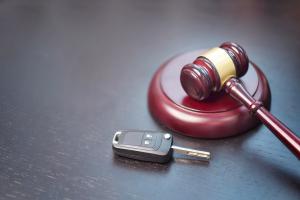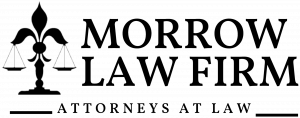Louisiana Liability Laws for Accidents Involving Rental Equipment
Some agreements attempt to limit the rental company’s liability for accidents.”
OPELOUSAS, LA, UNITED STATES, December 20, 2024 /EINPresswire.com/ -- Accidents involving rental equipment often raise questions about liability and responsibility under Louisiana law. Rental equipment—ranging from construction machinery to tools and vehicles—plays a critical role in many industries, but when accidents occur, determining who is at fault can become a complex legal issue. — Stephen M. Morrow
Understanding the laws governing liability in these cases is essential for equipment renters, owners, and third parties who may be impacted.
Stephen M. Morrow, a lawyer at Morrow Law Firm in Opelousas, Louisiana, explains that accidents involving rental equipment involve multiple parties, and liability often depends on the circumstances of the accident, the condition of the equipment, and the contractual agreements in place.
Understanding Rental Equipment Liability
In Louisiana, liability in rental equipment accidents is typically determined by examining who contributed to the incident, whether through negligence, improper use, or failure to maintain the equipment. Responsibility may fall on one or more of the following parties:
The Equipment Renter (User)
Individuals or businesses that rent equipment are often held responsible for its proper operation and care. When an accident occurs due to user error, such as improper handling, failure to follow instructions, or neglecting safety protocols, liability may rest with the renter.
The Rental Company or Owner
Rental companies and equipment owners have a duty to provide safe, operable equipment. This includes conducting regular inspections, performing necessary maintenance, and addressing defects before renting out the equipment. If an accident occurs due to a mechanical failure or a hidden defect that the owner should have addressed, they may bear responsibility.
Manufacturers or Third Parties
If a defect in the design or manufacturing of the equipment causes an accident, liability may extend to the manufacturer. Additionally, if a third party, such as a maintenance contractor, fails to properly repair or service the equipment, they could share responsibility for the accident.
Third-Party Negligence
Other parties may contribute to an accident involving rental equipment. For example, in a construction site accident, a contractor, subcontractor, or worker may act negligently, leading to injury or property damage. Identifying all contributing parties is critical to assigning liability accurately.
Contractual Agreements and Liability
Rental agreements often include terms that outline the responsibilities of the renter and the rental company. These contracts may include clauses regarding:
Maintenance Obligations: Rental companies are generally responsible for ensuring the equipment is safe to use before it is rented. However, renters may be required to conduct routine inspections during use.
Liability Waivers: "Some agreements attempt to limit the rental company’s liability for accidents. While these clauses are common, they may not always be enforceable under Louisiana law, particularly if negligence can be proven," adds Morrow.
Proper Use Instructions: Rental companies often provide manuals or safety guidelines. Failure to follow these instructions can shift liability to the renter.
Understanding the language of rental contracts is essential for determining who bears financial and legal responsibility after an accident. Courts may review these agreements closely to assess the parties’ obligations and whether negligence played a role in the incident.
Common Causes of Rental Equipment Accidents
Accidents involving rental equipment occur for various reasons. Some of the most common causes include:
Equipment Malfunctions: Poor maintenance or hidden defects in rental equipment can lead to unexpected failures, causing injuries or property damage.
Improper Use: Accidents often result from improper handling, inadequate training, or failure to follow safety guidelines while operating the equipment.
Lack of Safety Inspections: Skipping routine safety checks before and during use can lead to dangerous situations.
Environmental Factors: Hazardous worksite conditions, uneven surfaces, or poor visibility can increase the likelihood of accidents.
Identifying the specific cause of the accident is essential for determining liability and pursuing compensation.
Louisiana Comparative Fault in Rental Equipment Accidents
Louisiana’s comparative fault system allows liability to be shared among multiple parties based on their level of responsibility for the accident. If the injured party is found partially at fault, their compensation is reduced proportionally by their percentage of fault.
For example:
If an equipment malfunction causes 70% of an accident, but the renter’s improper use accounts for 30%, compensation for damages would be reduced by 30%.
This system ensures that liability is distributed fairly based on the actions of all parties involved. However, disputes often arise over fault percentages, making it critical to investigate accidents thoroughly.
Steps to Take After a Rental Equipment Accident
After an accident involving rental equipment, the actions taken can significantly impact liability determinations and compensation claims. Key steps include:
Seek Medical Attention: Prioritize health and safety by addressing injuries immediately.
Document the Accident: Take photos of the equipment, the scene, and any visible damage. Collect witness statements and contact information.
Report the Incident: Notify the rental company and other relevant parties about the accident as soon as possible.
Preserve Evidence: Do not attempt to repair or modify the equipment. Preserving its condition allows investigators to determine whether mechanical issues contributed to the accident.
Review Rental Agreements: Examine the terms of the contract to understand the responsibilities of each party.
Consult Legal Guidance: Addressing liability and navigating insurance claims can be challenging without professional assistance.
Recovering Compensation for Rental Equipment Accidents
Injured parties in rental equipment accidents may pursue compensation for medical expenses, lost wages, property damage, and other losses. Depending on the circumstances, claims may involve:
The rental company’s liability insurance
The renter’s commercial or personal insurance policies
Manufacturer liability in cases involving defective equipment
A thorough investigation of the accident and identification of all liable parties is essential to ensuring a fair resolution.
Conclusion
Rental equipment accidents in Louisiana often raise complicated liability issues, involving renters, rental companies, manufacturers, and third parties. Louisiana’s comparative fault laws provide a framework for assigning responsibility, but determining fault requires careful analysis of rental agreements, the condition of the equipment, and the circumstances leading to the accident.
Understanding these legal principles and taking the right steps after an accident can help clarify liability and ensure that claims are handled fairly.
Morgan Thomas
Rhino Digital, LLC
+1 504-875-5036
email us here
Visit us on social media:
Facebook
Legal Disclaimer:
EIN Presswire provides this news content "as is" without warranty of any kind. We do not accept any responsibility or liability for the accuracy, content, images, videos, licenses, completeness, legality, or reliability of the information contained in this article. If you have any complaints or copyright issues related to this article, kindly contact the author above.


